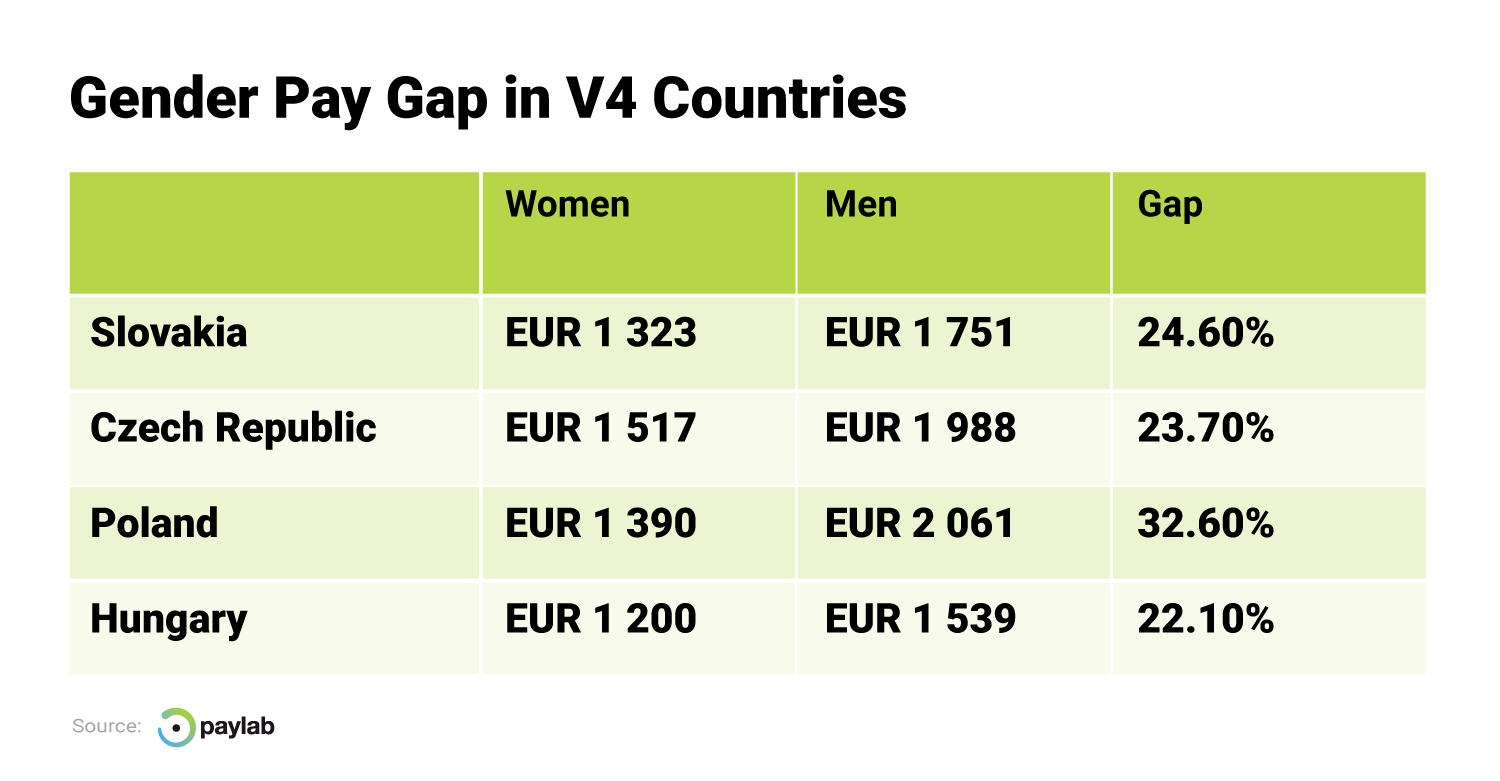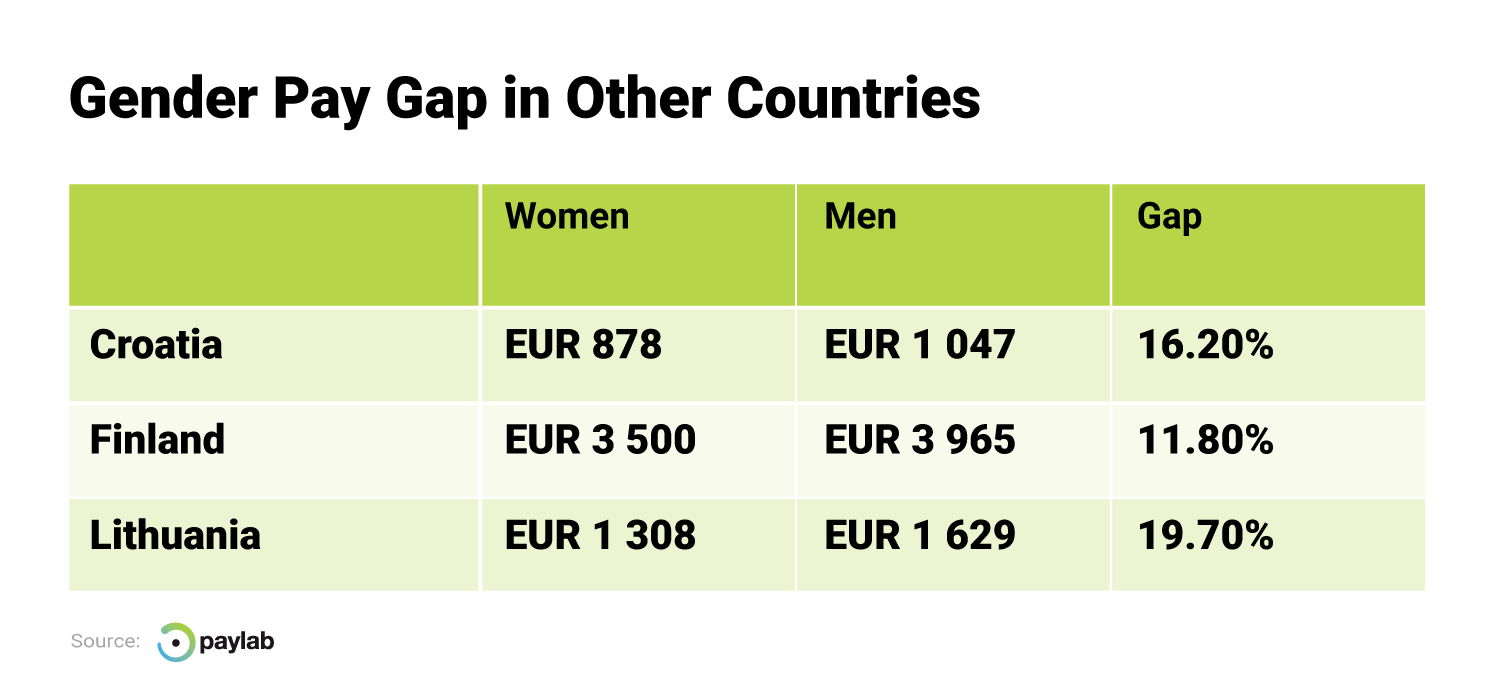8 March 2022

When you select a group of female employees and a group of male employees in a company and try to estimate which of the groups earns more, it will probably not be difficult to find out. Experience and statistics clearly point to the men. The latest analysis of the international website Paylab.com confirms that women earn less across countries. There are many reasons for wage inequality; the numbers may not be affected by discrimination, but, for example, by job preferences, stereotypes as well as the orientation of the economy.
How does the gender pay gap look like in other V4 countries?
The analysis compares the differences between women's and men's earnings in several countries.
The gender pay gap is visible in all V4 countries. While Czech, Slovak and Hungarian women's earnings are similar to those of men, the differences in Poland are much more pronounced.

While the gender pay gap in the remaining countries of the Visegrad Group is about a quarter, the Polish disparity is almost 33 per cent.
Where are wage discrepancies less pronounced?
Among the V4 countries, we can see the lowest gender pay gap in Hungary. The difference here is about 22 per cent. In the Visegrad Group, we can observe more significant pay disparities than in other European countries. A lower gender pay gap can be found, for instance, in the Balkans. This is mainly due to the different orientation of the economy with a more balanced representation of both genders in the most sought-after positions on the labour market.
Croatia can be an example. Compared to the above-mentioned countries in the heart of the oldest continent, the difference is considerably lower. It accounts for about 16 per cent.

An even lower pay disparity can be seen in the north, where we can observe, for example, a significantly higher share of women in managerial positions compared to Slovakia. The earnings of Finnish female workers are, on average, less than 12 per cent lower than the those of their male colleagues.
What factors affect the gender pay gap?
There are many reasons for wage inequality; an analysis by Paylab.com explains that the numbers may not be affected by discrimination, but especially by customs, including different job preferences. It is particularly typical of the countries of the Visegrad Group that lower wages are paid in sectors with a predominance of women. Sectors with a higher proportion of women are, for example, health and social services, administration or economy, finance and accounting. On the contrary, when we look at the sectors that are male-dominated, e.g. telecommunications, electrical engineering, power industry and mechanical engineering come to our attention.
Another factor having an effect on the gender pay gap is maternity leave. In many countries, it is almost always the mother who takes care of a newborn baby. While women are on maternity leave for several years, their male colleagues are gaining experience in work, which is often linked to a pay rise.
However, in many regions we can still meet with the effect of gender stereotypes. Women are still not brought up and motivated to pursue their careers. Therefore, we can see persisting stereotypes in which the father is considered the breadwinner, while the mother is to take care of the household and children.
Another important reason, often related to the said factors, is also the fact that women are apt to ask for less money at job interviews. This issue is frequently addressed in countries such as Slovakia, the Czech Republic, Hungary or Poland. On the other hand, lower initiative may also be the cause. There are cases where women themselves often consider the man to be the breadwinner. At the same time, we encounter the fact that women tend to be less self-confident on the labour market due to historical labels, which makes salary negotiations harder for them. There is also another point that is worth mentioning and true for many countries: when women enter into salary negotiations, they must negotiate with a male manager.
